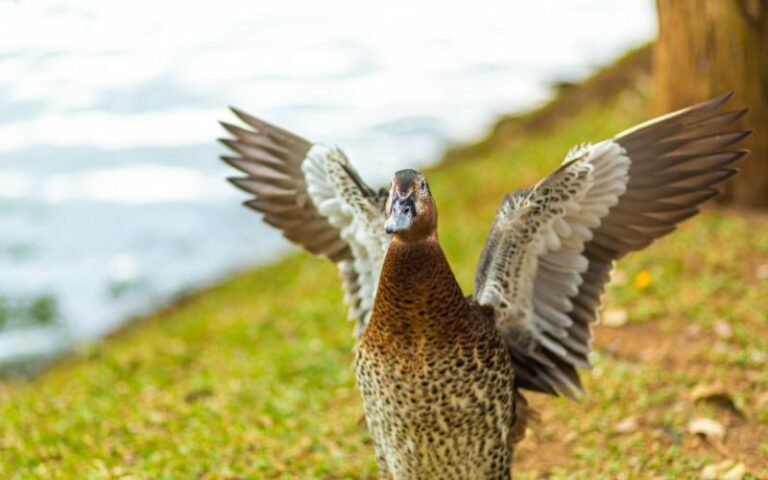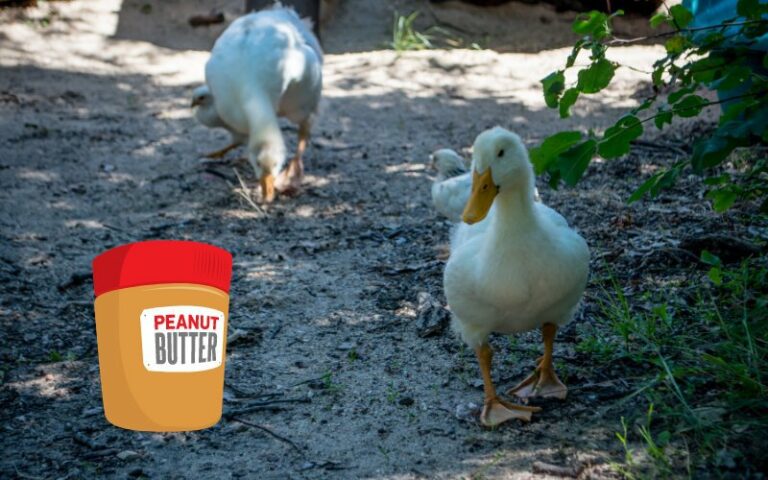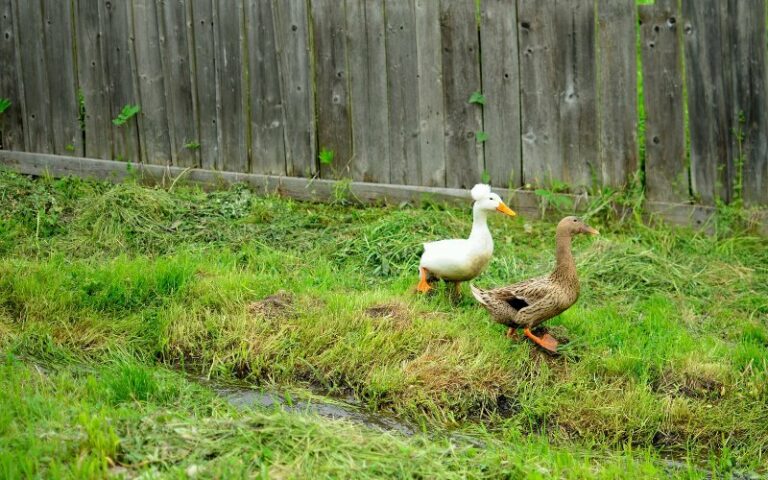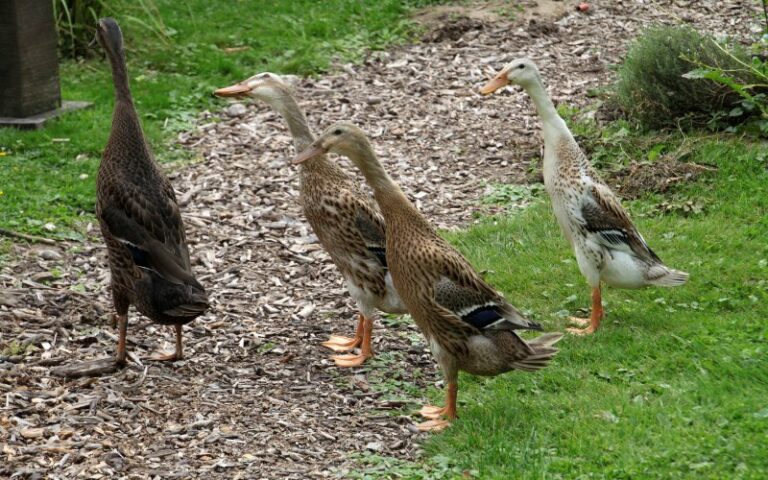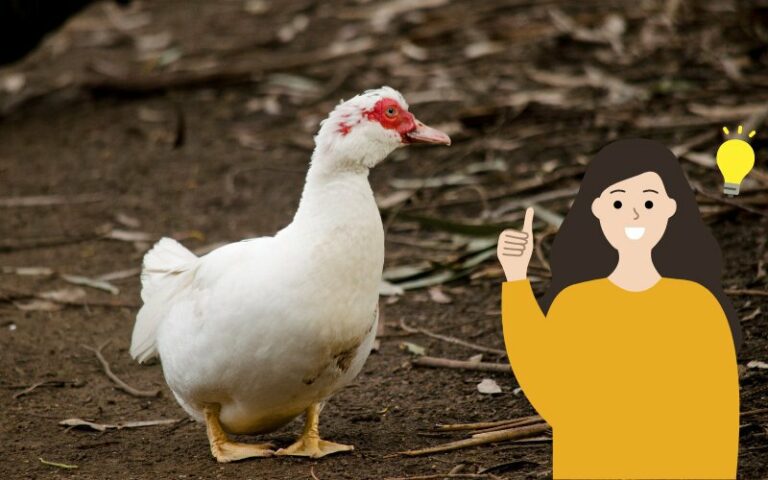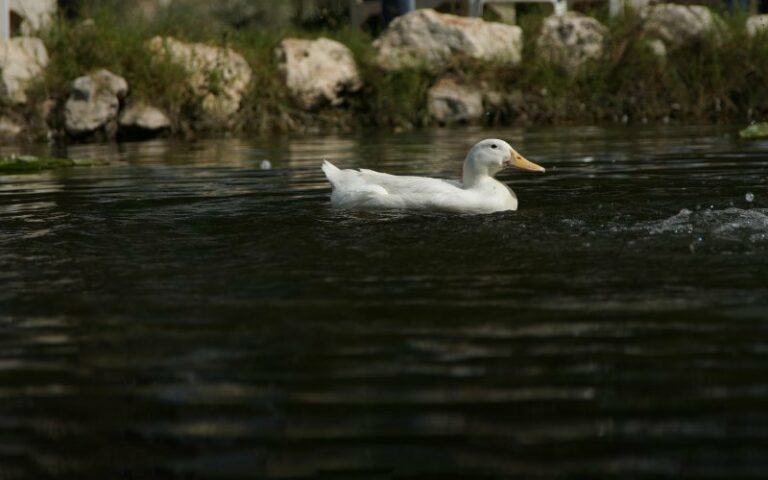Why are My Ducks Not Laying Eggs? (14 Reasons + Solutions)
Ducks can be much trickier to keep laying eggs than chickens. However, if you have ever tasted a duck egg, you know that it’s worth the trouble. Over the years, I have encountered every single one of these reasons why a duck will stop laying eggs and I can assure you that there is always a solution as long as the duck is healthy.
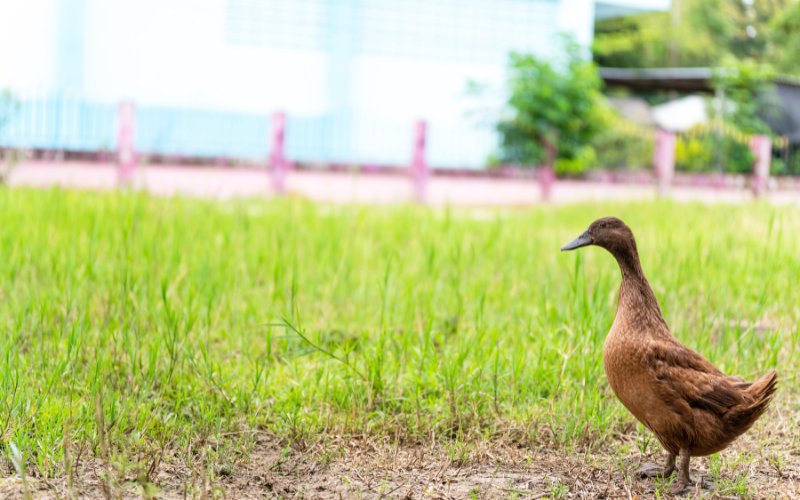
Why Your Ducks Aren’t Laying Eggs (The Short Answer)
If you’re asking, “Why are my ducks not laying eggs?” the answer is likely either “stress” or “winter”. While it’s not a satisfying answer, ducks won’t lay eggs when they feel threatened or insecure. This can be due to poor nutrition, outside threats like predators, cold weather, or a break in their routine. Ducks need to feel secure, calm, and well-fed to lay eggs consistently.
14 Reasons Why Your Ducks Aren’t Laying Eggs + Solutions
Though more resilient against disease and egg-laying-related issues than most chickens, ducks can be very particular about what needs to be happening for them to lay eggs. Below are over a dozen situations you may have encountered or are likely to encounter over your time raising ducks as well as the best solutions I have used over the years, where applicable.
Age
Ducks need to be at least 5 months old to lay eggs healthily. Some breeds, like muscovies or the larger duck breeds, will take 6 months or a little longer to be mature enough to start laying eggs.
Good laying ducks should produce about 200 eggs in their first year and as many as 300 in their 2nd through 4th years. After the 4th year, production may begin to taper off. Laying ducks with a strong genetic history of being good layers will produce more eggs for longer and these extra eggs can add up to 200 or more extra eggs produced over the duck’s lifespan. This is why choosing where to get your starting flock and selective breeding are critical.
Not Enough Sunlight
So maybe you got your ducks in the middle of summer and now it’s late autumn or winter and you’re thinking, “My ducks are 6 months old and not laying eggs.” Well, that’s probably because spring is often when ducks lay their first eggs, even if they’ve technically been mature enough to lay for several months. This is why it’s often best to get chicks in the early fall and have them mature over the winter, kept warm and safe indoors.
Ducks need at least 15 hours of light a day to lay eggs. You can expose them to natural sunlight or use a combination of sunlight and natural-approximate artificial lighting to reach this goal. Without enough light, ducks won’t lay eggs. The same goes for too much light. You don’t want to leave the lights in the barn or coop on 24/7. This can lead to insomnia for your ducks and, as a result, no eggs.
Extreme Weather
There’s nothing unusual about ducks not laying eggs in winter or the heat of summer, though this problem can be avoided. Snow, wind, and high heat can all lead to mild exhaustion and less energy for your ducks to devote to egg production. Even if they are kept indoors, the lack of variety and exercise could lead to another reason not to lay eggs. In any extreme or adverse weather setting, make sure your ducks have enough food, deep water, and adequate shelter. A heated or cooled coop or shelter can also help improve egg-laying conditions, especially if you are trying to keep your ducks laying year-round.
Nowhere to Lay the Eggs
Many ducks will use a nesting box as you would expect them to as long as they have a little straw in it to cover up the eggs. However, about 1 in 4 of the laying ducks I have encountered, no matter how good of a layer they were, would never use the box but would instead try to lay an egg beside it and then hide the egg behind the box. Or they would wait and hide the eggs in the yard.
The best solution I have to this situation, if you don’t care to follow your duck around until you have all of your eggs, is to place nesting boxes in every corner of the shelter, with plenty of material to cover up the eggs. If there still seems to be a problem, a small stack of rocks, about the size or shape of eggs, can be an attractive place to lay an egg for any duck that feels the need to hide their eggs.
Not Enough Protein or Calcium in Their Diet
Laying ducks should be fed food meant for laying ducks. Not chicken feed, not all-flock, not food meant for meat ducks. This is getting easier to come by but can still be hard to find in some places. If you must feed something else, laying feed for chickens is fine but you need to supplement with forage and calcium. Crushed oyster shell is the ideal choice as it provides both grit and calcium and it does not spoil when scattered in the yard.
Molting
Every 10 to 18 months, like clockwork, laying ducks will stop producing eggs for a few weeks while they molt and recover. This is a natural break and there is no way to skip it without harming the duck. Keep feeding the duck as you normally do, with lots of calcium and protein, and you should see production resume in about 2 weeks. Once you get the rhythm down, it should be easy to predict when this molting/rest period will occur in the future.
Illness, Disease, Injury, or Parasites
If your duck stops laying eggs suddenly or seems to have trouble walking, it may be egg-bound. This is a critical condition and one that will require a visit to the vet as soon as possible. If not possible within 24 hours, let the duck float in warm water and grease its vent with petroleum jelly. This is the best method of relaxing the duck and loosening the eggs, short of veterinary assistance. This method is far from foolproof.
Beyond being egg-bound, a duck that stops laying may be stressed out by parasites, injury, or another type of disease. A livestock veterinarian should be able to help you diagnose the problem and help keep it from spreading to the rest of your flock.
Broody Behavior
When a duck wants to have ducklings or if a duck has recently hatched a clutch of eggs, it will not lay. Because of this, if you have an egg-laying operation, it’s a good idea to keep several older ducks around that have proven themselves to be good mothers. These ducks can sit on the eggs while your active egg layers continue to produce.
Eggs should be collected daily, whether they’re fertilized or not, to discourage broody behavior, though it can still happen. To break up broody behavior, move the nesting boxes in the coop and ensure that the broody duck stays outside during the day.
Drakes
Drakes are the source of many problems in a flock of ducks. They can pursue your ducks too frequently and tire them out or they can pursue a specific duck so much that the other ducks will fight the drakes to help her. Ideally, you will have as few drakes with your laying flock as possible. If you have the space and enough ducks, it’s never a bad idea to keep a pen for the drakes (and some ducks in you want to increase your flock) and have a separate pen for only egg-laying ducks.
Breed of Duck
Not all duck breeds are good for laying eggs. Most of them will lay some eggs each year, but not nearly enough for them to be exclusively laying ducks. Most laying ducks will be medium-sized ducks or runner ducks. Call ducks (and other bantam ducks) are usually kept as pets and large ducks are kept for meat or meat and eggs.
As mentioned above, good laying ducks should produce 200 or more eggs in their first year. The right duck with good genetics, such as a Khaki Campbell or a Welsh Harlequin, can produce over 300 eggs a year.
A Break in the Routine
Ducks like routine. They should be kept indoors for no more than 10 hours a day and sent inside or outside at the same time each day or as close as possible. Feedings should also be scheduled and food should be given at the same time each day though grit, forage, and supplements like oyster shell can be fed freely or as free choice.
Not Enough Exercise
Healthy laying ducks get plenty of exercise and are allowed to walk, swim, and browse for forage in their pen or yard. Obese ducks will not lay eggs. Exercise helps reduce stress.
Other Stressors
Stress halts egg production until the duck can settle down and feel secure. If ducks are chased, by predators, children, or even well-meaning farmers trying to get a loose duck back into its enclosure, they may stop laying for a day or two afterward. Once the stressor is removed, the duck should be able to calm down and start laying again.
Is Your Duck a Duck? (Or is it a Drake?)
This is the last reason on the list as the title of this article implies that your duck did lay eggs at one point. If it did not and it’s already been 8+ months and none of the above reasons seemed to hit home, you may have a drake or a very rare duck that is, unfortunately, unable to lay eggs. Always double-check to see if your duck breed has sex-selective traits and, if it does, ensure that your ducks are all ducks with no drakes mixed in.
Most duck breeds do have one thing that sets the ducks and drakes apart- curly tail feathers. Most male ducks (drakes) will have these feathers while females will not.

